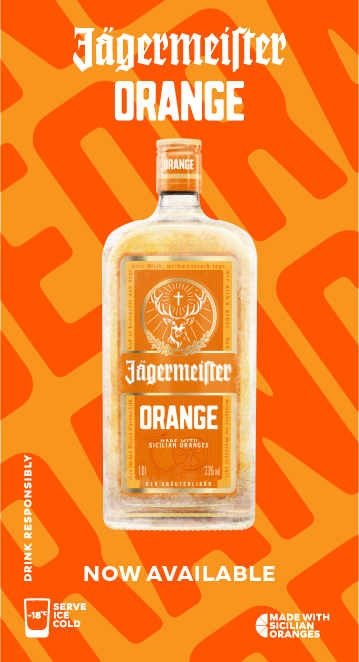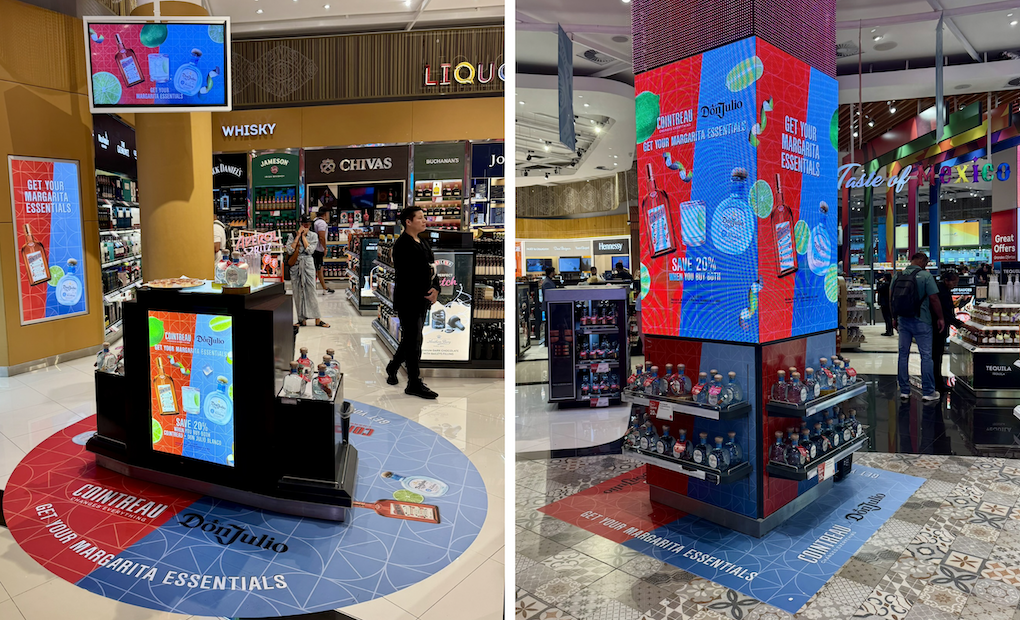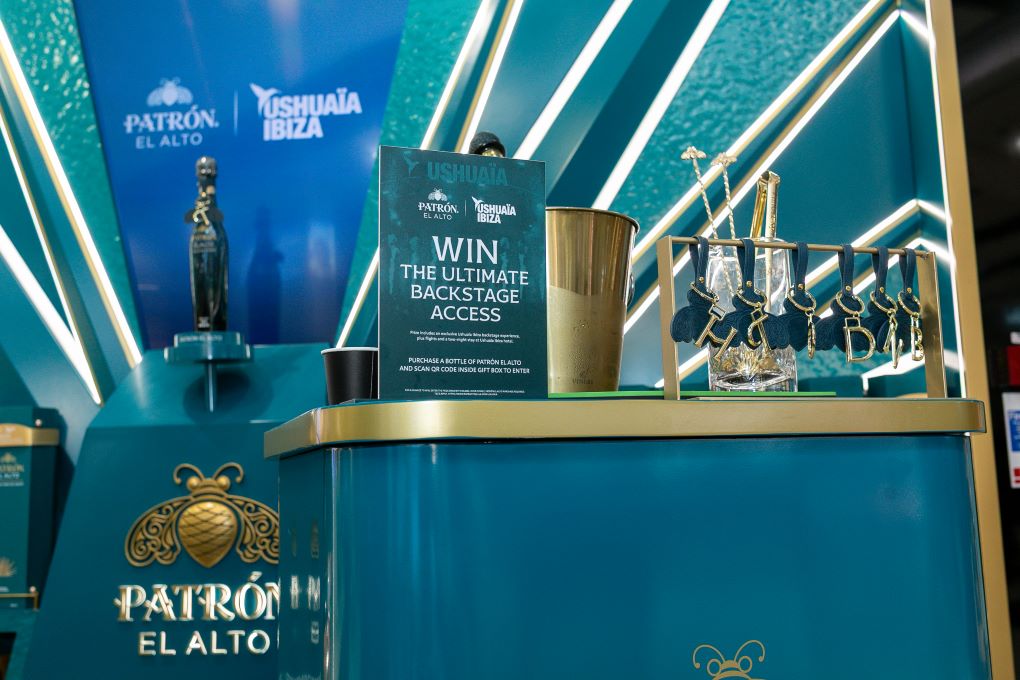INTERNATIONAL. SABMiller is one of the world’s leading brewers, with operations in Africa, Asia, Europe, Latin America and North America, and it is growing its presence in global travel retail. Its approach to Corporate Social Responsibility (CSR) is just as extensive, with initiatives stretching across every continent – ranging from black economic empowerment and HIV/Aids programmes in Africa to enterprise development in Peru and Ecuador.
With operations in so many local communities, SABMiller believes that sustainable development is fundamental to the success of its business – and the resulting profits can in turn be reinvested into the wider community. In 2009 the company announced that 8.45% of its shares – worth over ZAR7 billion (US$1 billion) – will be placed in black ownership as part of its long-term commitment to Broad-Based Black Economic Empowerment (BBBEE) in South Africa. The deal has created about 40,000 new shareholders, including a charitable foundation which will use the dividend income for the benefit of the wider South African community.
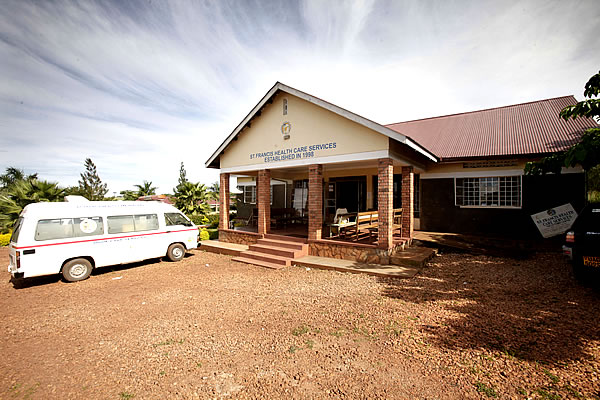 |
An HIV/Aids clinic in Uganda, where SABMiller subsidiary Nile Breweries is providing awareness and prevention education, voluntary counselling and testing, and anti-retroviral therapy to the local community |
Also in Africa, where the HIV/Aids pandemic is particularly relevant, SABMiller has put in place programmes to raise awareness and address the impact of the disease, both within the company and beyond the workplace. Ugandan SABMiller subsidiary Nile Breweries is providing local communities with awareness and prevention education, voluntary counselling and testing, and anti-retroviral therapy.
To date the company has trained 320 peer educators to promote HIV/Aids awareness within sorghum farming communities, reaching over 4,000 farmers. In addition, training in home-based care has been provided to people with HIV/Aids-stricken relatives, and children orphaned by the disease have received bedding, school books and psychosocial support.
 |
The stigma associated with HIV/Aids can make the process of telling spouses and dependants very difficult; to try to overcome this SABMiller has rolled out couples testing for its employees and their spouses in Uganda |
The support of fledgling businesses is another means by which SABMiller strives to contribute to local communities. The company believes that successful entrepreneurs can spur economic growth, which in turn provides greater market opportunities and better-qualified staff for employers like SABMiller.
The company recently marked the 15th year of KickStart, an enterprise development programme in South Africa. The scheme aims to promote entrepreneurship and business skills among 18- to 35-year-olds from previously disadvantaged backgrounds, providing training, mentoring and grants to assist small businesses.
Since its inception more than 22,700 young people have benefited from the programme, and KickStart participants have set up more than 3,200 businesses. It has since evolved to become the largest and most successful entrepreneurship development project in South Africa, with many of these enterprises growing into multi-million Rand organisations.
Other similar initiatives supported by SABMiller include Destapa Futuro in Colombia, Siembra Futuro in Ecuador and Progressing Together in Peru. These development programmes for entrepreneurship and small business owners have trained more than 300 people since 2008.
Members of the community are not the only ones to receive aid from SABMiller’s CSR programme – the company is just as committed to the wider environment and natural surroundings that sustain the community. Issues of water scarcity and accessibility are evident concerns to SABMiller’s brewing business; and in 2008 SABMiller set a target of using -25% less water per hectolitre of beer produced by 2015, establishing a range of programmes to achieve this reduction.
In September 2009 MillerCoors inaugurated the company’s first annual Water Stewardship Month, which saw each of the brand’s ten breweries partnering with local non-profit organisations and hosting volunteer events to improve water quality. Within their local communities, over 500 MillerCoors employees helped to clean up rivers and beaches, restore stream beds, test water quality, and plant trees and bushes in preservation areas.
In Chippewa Falls in the US employees collected five truck loads of debris along Duncan Creek, while volunteers in Albany placed 300 storm drain markers on a major street to alert residents that chemicals deposited into the storm drain could threaten water quality.
Through partnerships with The Nature Conservancy and River Network, MillerCoors also invests in watershed quality, education and conservation efforts.
Besides safeguarding the quality of water, SABMiller is also concerned with the issue of climate change. One of the pillars of its CSR programme is geared towards the reduction of the company’s energy and carbon footprint.
New technology and processes to help save energy have been trialled at several breweries. In Hungary absorption cooling is being utilised to use waste heat from the brewing process to reduce the load on the traditional electricity-intensive ammonia refrigeration process. And at its Alrode brewery in Gauteng, South Africa, SABMiller has developed a biogas recovery plant to reduce its traditional dependence on coal. The company aims to reduce fossil fuel emissions from its onsite energy use by -50% between 2008 and 2020.
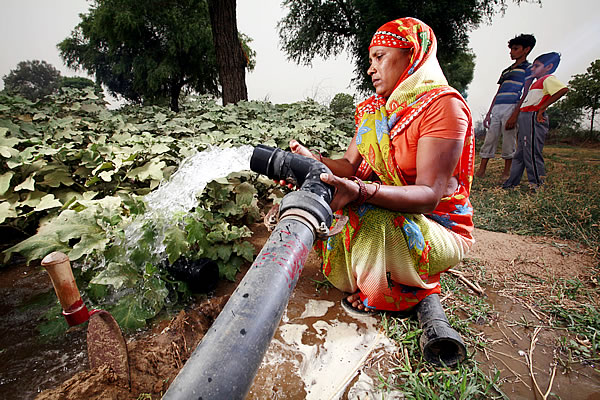 |
SABMiller’s natural recharge project in Rajasthan, India, aims to protect the water supply for the Rochees brewery and for local farmers – a foremost priority for the firm’s brewing business |
SABMiller’s approach to sustainable development is based on ten priorities – and outlined above are only four of these. The rest include discouraging irresponsible drinking, packaging re-use and recycling, working towards zero-waste operations, encouraging enterprise development in its value chains, respecting human rights, and transparency and ethics. If more companies could follow SABMiller’s lead in developing a CSR programme that is as comprehensive, more communities and the wider environment would stand to benefit in the years ahead.
NOTE: For more on how leading brand owners and travel retailers are addressing the issue of CSR, click here to view the CSR supplement in the October 2010 Print Edition of The Moodie Report.
Advertisement |





